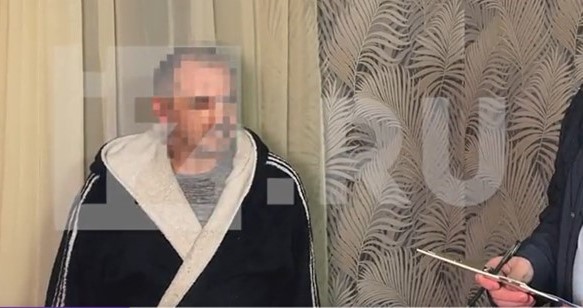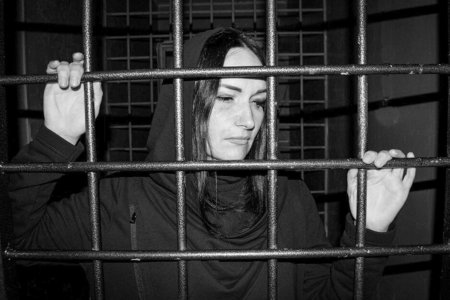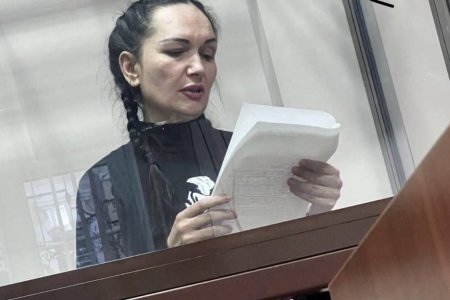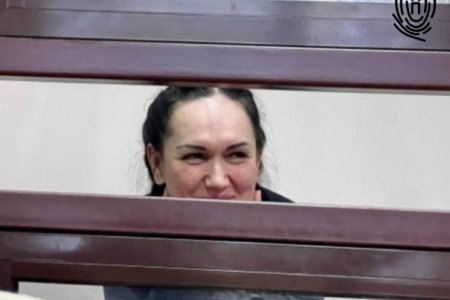
Russia’s FSB have once again claimed to have ‘thwarted an act of sabotage’, with the only tangible part of their story being the arrest of 52-year-old Ukrainian, Serhiy Horiunov. Scepticism is only exacerbated by the allegation from a country that has been systematically bombing Ukraine’s energy infrastructure since October 2022 that Horiunov was planning to blow up an electrical substation in occupied Kerch.
Russian and Russian-controlled media reported on 7 April that the FSB had detained Horiunov, claiming that he had been working for the Ukrainian Army’s Special Operations Forces (SOF{). The Russian pro-Kremlin Izvestia called him a “Ukrainian saboteur” and asserted that he had been working with ‘fixers’ from the Special Operations Forces. Horiunov is identified as being from the Rivne oblast, and allegedly has both Ukrainian and Russian citizenship. It is claimed that he only moved to occupied Crimea two years ago, that he changed his last name in 2022 and “was recruited by the Ukrainian Armed Forces.” At another point, the assertion is that he contacted SOF officials in June 2022. According to the FSB, he communicated with his ‘fixers’ via Messenger.
The video posted by Izvestia is purportedly of Horiunov’s arrest and the ‘search’ of his apartment. There is, essentially, no way of knowing whether this was the case or whether, as with several other arrests, the FSB video circulated to the media was staged from beginning to end. The FSB claim that they discovered an explosive device with 2,3 kilograms of plastic explosives and a device making it possible to delay the explosion in order to get away. They had also ‘found’ three smartphones with “some of these used for contact with the SOF officers” and “correspondence in which the man planned the actions, in communication with his fixer.” A mobile phone is shown with a video presumably depicting the substation. There is nothing to suggest that a lawyer was present, and since the FSB illegally bring the theoretically independent ‘witnesses’ of the search with them, there is no way of knowing what, if anything, was genuinely found, and what was brought to the apartment by the FSB.
It is alleged that Horiunov’s tasks had originally been to gather information about sites of critical infrastructure in occupied Crimea. ‘Proof’ of the purported plans to blow up the Kerch substation was, purportedly found in Horiunov’s ‘correspondence with the fixer’. Izvestia writes that Horiunov “was first supposed to provide photographs and coordinates of the site, as well as to estimate how close to it one can get.“ In reporting the arrest, Crimean Realities point out that none of this information is in any way secret and can easily be found and downloaded from the Internet.
Equally implausible is the claim that Horiunov received a parcel from his Ukrainian ‘fixers’ with the explosive device. He was also provided with instructions on the procedure for setting off the explosive.
On 7 April 2023, the FSB in the occupied part of Kherson oblast reported having arrested a supposed “Ukrainian Security Service [SBU] agent and his accomplice”. It is claimed that they were engaged in gathering information about the deployment and movement of Russian forces, with the charges laid under Article 276 of Russia’s criminal code {‘spying’}. Russia has been violating international law by applying its repressive legislation in occupied Crimea since 2014, and it is now committing the same crimes on Ukrainian territory seized after its full-scale invasion.
The narrative in the many ‘sabotage’ prosecutions that Russia has staged in occupied Crimea is always provided by the FSB, with essentially no independent evidence to back the claims. The situation in this case is compounded by the assertion that Horiunov changed his name two years ago.
The video shows show a thickset man who looks middle-aged (the FSB say he was born in 1971). Given the difficulties in identifying him, due to the alleged change in name, it is curious that the man’s face is blurred throughout.
Russia has been claiming to have thwarted planned acts of sabotage and caught ‘Ukrainian saboteurs’ in occupied Crimea since soon after its invasion and annexation. In essentially all cases where the Ukrainians arrested have finally received access to independent lawyers, they have retracted any ‘confessions’ videoed while they were held totally under FSB control. Most have provided harrowing accounts of the torture used to extract such ‘confessions’. In very many cases, there has been overt pressure on the detainees to prevent them having independent lawyers, with the FSB foisting individuals who sign documents and pay no attention to torture and other illegal methods being used against their ‘clients’. Most of these prosecutions (of journalist Vladislav Yesypenko, nurse and civic journalist Iryna Danilovych; Volodymyr Dudka, Oleksiy Bessarabov and Dmytro Shtyblikov and many others) have been based on evidently falsified ‘evidence’ which the ’courts’ invariably ignored.



